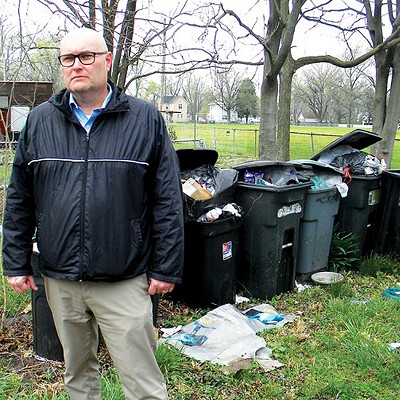Illinois abolished traditional parole in 1978, one of 16 states to have abolished or severely restricted discretionary parole. Of the 1.4 million people currently held in U.S. prisons, one in seven have life sentences. In states with parole, incarcerated individuals can present their cases to a parole board for release after serving minimum sentences. This is not the situation in Illinois, where some incarcerated people can seek early release, but many are not eligible, due to a Truth in Sentencing statute passed in 1998. Without a parole option, executive clemency, rarely granted, is the only alternative for people with certain life sentences. The absence of parole, along with other criminal sentencing measures, has resulted in an increase in incarcerated people in the state – a 500 percent increase of people in prison over the last four decades, now at 40,000. More than 5,000 people in Illinois are serving life sentences.
Criminal justice policy in Illinois has resulted in an aging prison population: almost 25% of people in prison in Illinois are over 50 years old, up from 4% in that age group imprisoned in 1988. Studies show that the imprisonment of older adults has numerous humanitarian and economic costs, as well as negative effects on families and communities. The adverse health impacts of long-term incarceration are widespread. People in prisons experience higher rates of chronic conditions, infectious disease and mental health problems than non-incarcerated people. Correctional facilities are generally ill-equipped to successfully address these medical conditions.
The incarceration of older adults comes at a high economic cost, while contributing little to a reduction in crime. Rates of crime decline dramatically after age 55, while the costs of care for older adults in prison greatly exceed costs for caring for younger adults. In a study of adults released on parole between 2001 and 2003, those aged 45 and older have been found to have significantly lower recidivism than younger adults. As prison populations age, few facilities are able to accommodate age-related changes such as functional decline, mobility problems and chronic medical conditions. In addition, incarcerated persons tend to age at a faster rate than the general population. Finally, incarcerated older adults are particularly vulnerable to victimization from their younger counterparts. The cost of keeping each person older than 50 in jail is $60,000 to $70,000 per year, double the cost of incarceration of a younger person. By the time of release, many older adults no longer have family members able to provide support and have difficulty securing housing or care to provide for basic needs. Many nursing and hospice facilities do not allow admission for persons with felony records. The absence of parole further exacerbates racial health inequities. Illinois Black people make up 15% of the population yet account for 66% of people serving life sentences.
Illinois legislators and organizations in the state are looking for ways to compassionately deal with aging prison populations. One of which is the Earned Reentry bill, HB3373. This bill would make any person who has served at least 20 consecutive years in prison eligible to be considered for release by the Prisoner Review Board. An existing Illinois law on compassionate release (effective in 2022) creates a process for the release of incarcerated individuals whom a health care provider has determined to have terminal illnesses or are medically incapacitated. A final effort seeking justice for older prisoners is being conducted by Change.org, which is circulating an online petition asking Gov. JB Pritzker to exercise his executive clemency powers to rectify the past injustices from which thousands of people continue to suffer. The importance of compassionate release has been discussed in a Chicago Tribune editorial by India Hilty and in a recent book, The Other Dr. Gilmer, Two Men, A Murder and an Unlikely Fight for Justice, by Benjamin Gilmer. This book addresses issues regarding punishment and healing facing an imprisoned man with Huntington's disease, for whom the author tried unsuccessfully to win release.
Illinois should adopt an earned reentry plan and continue to compassionately release terminally ill and medically incapacitated individuals. Pritzker should use his executive clemency power to speed the release of aging prisoners who have served decades in prison and pose no threat to society.
Susan Allen is a member of the Faith Coalition for the Common Good. She is a longtime Springfield resident and a former state employee with the Illinois Department of Human Rights. She has always been interested in social justice issues.




















